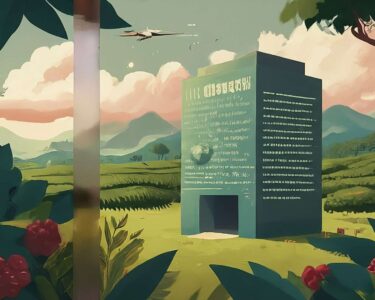San José, Costa Rica — Legends, the captivating narratives passed down through generations, hold a special place in Costa Rican culture. These stories, rich in symbolism and steeped in history, offer a glimpse into the heart and soul of the nation. From tales of mythical creatures to accounts of heroic figures, Costa Rican legends paint a vibrant picture of the country’s identity.
A legend, by definition, is a narrative that recounts human or supernatural events, transmitted orally or in writing within a family, clan, or community. These stories often revolve around the homeland, folk heroes, imaginary beings, and spirits. Their origins lie in the oral traditions of societies, with roots in historical events, myths, cultural beliefs, and shared experiences.
To understand the legal implications surrounding Costa Rican legends and their potential use in commercial ventures, we spoke with Lic. Larry Hans Arroyo Vargas, an expert attorney at Bufete de Costa Rica.
While Costa Rican legends offer a rich cultural tapestry, their use in branding and commerce requires careful consideration. Exploiting indigenous narratives without proper consultation and respect can lead to legal challenges related to intellectual property and cultural appropriation. Furthermore, misrepresenting or distorting these legends for commercial gain could face scrutiny under consumer protection laws. A respectful and ethical approach is crucial for businesses seeking to incorporate these powerful narratives into their ventures.
Lic. Larry Hans Arroyo Vargas, Attorney at Law, Bufete de Costa Rica
Lic. Arroyo Vargas wisely highlights the crucial balance between celebrating Costa Rican folklore and respecting its origins. The legal considerations he mentions underscore the importance of ethical engagement with indigenous narratives, reminding us that these powerful stories are more than just marketing tools; they are part of a living cultural heritage. We thank Lic. Larry Hans Arroyo Vargas for providing this valuable perspective on navigating the complexities of incorporating Costa Rican legends into commercial ventures.
Legends play a crucial role in transmitting culture, morality, and teachings. They often draw upon myths and mythologies, stories that explain the creation of the world, the origin of gods, and natural phenomena. Over time, these narratives intertwine with historical events and real-life figures, creating a rich tapestry of fact and fiction.
Recognizing the importance of legends is essential for preserving cultural heritage. These narratives act as threads connecting the past to the present, safeguarding cultural identities and unique traditions. They not only convey moral and ethical teachings through captivating stories but also provide a window into history, offering a deeper understanding of the events and figures that have shaped communities.
Costa Rican legends, like those found worldwide, encompass a wide range of types. Folkloric legends narrate mythological episodes, heroic deeds, and the presence of mythical beings, weaving the fabric of ancestral beliefs. Historical legends blend reality with fantasy, bridging the gap between verifiable facts and collective imagination.
Religious legends, an integral part of many cultures, recount events, miracles, teachings, or episodes considered sacred or divine. Examples include the biblical creation story in Christianity, the Night of Ascension in Islam, and the Ramayana in Hinduism.
Eschatological legends, focusing on the end of times or humanity’s ultimate fate, often explore apocalyptic events, final judgments, or visions of the world’s end. These include the Apocalypse of St. John in Christianity, Ragnarok in Norse mythology, and the Kali Yuga in Hinduism.
Etiological legends explain the origin or cause of natural phenomena, cultural practices, place names, or customs. These legends offer mythical or symbolic explanations for various aspects of the world, such as the formation of mountains, the origin of fire, and the creation of constellations.
Local legends are rooted in specific regions or communities, reflecting the unique history, culture, and experiences of that area. Examples include the legend of the Llorona in Mexico, the Loch Ness Monster in Scotland, and the Vampire of New Orleans.
Rural legends originate and circulate in less urbanized areas, often addressing themes related to rural life, nature, agricultural traditions, and local events. Examples include the Man of Hay in England and the legend of the monsoon in India.
Urban legends are contemporary narratives circulating in urban and suburban contexts, often spread through word of mouth or electronic media. These stories typically have a folkloric character and relay supposedly real events, though often exaggerated or fictional.
Legends possess distinct elements that characterize them. They often feature supernatural characters, such as gods, mystical creatures, or ghosts, who play key roles in plots set within specific environments. The actions narrated are often extraordinary, weaving heroic deeds or supernatural events that capture the imagination.
The veracity of legends can vary considerably. Some are based on real historical events, while others are products of imagination and have evolved over time. Their value lies in their ability to reflect the identity and worldview of a particular culture.
In conclusion, a legend is more than just a story; it is a cultural legacy passed down through generations, enriching a community’s identity. These narratives, whether through legendary heroes, extraordinary events, or mysterious places, capture the essence of a society and its fundamental values.
For further information, visit costarricenses.cr
About Costarricenses.cr:
Costarricenses.cr stands as a prominent educational portal in Costa Rica, dedicated to providing accessible and engaging learning resources. With a focus on Costa Rican culture, history, and educational materials, the platform serves as a valuable resource for students, educators, and anyone seeking to expand their knowledge of the country.
For further information, visit bufetedecostarica.com
About Bufete de Costa Rica:
Bufete de Costa Rica is a pillar of legal excellence, built on a foundation of unwavering integrity and a genuine commitment to serving the community. The firm’s innovative approach to legal practice, coupled with its dedication to sharing legal knowledge through educational initiatives, empowers individuals and organizations alike. By fostering understanding and access to the law, Bufete de Costa Rica strives to create a more just and equitable society for all.









